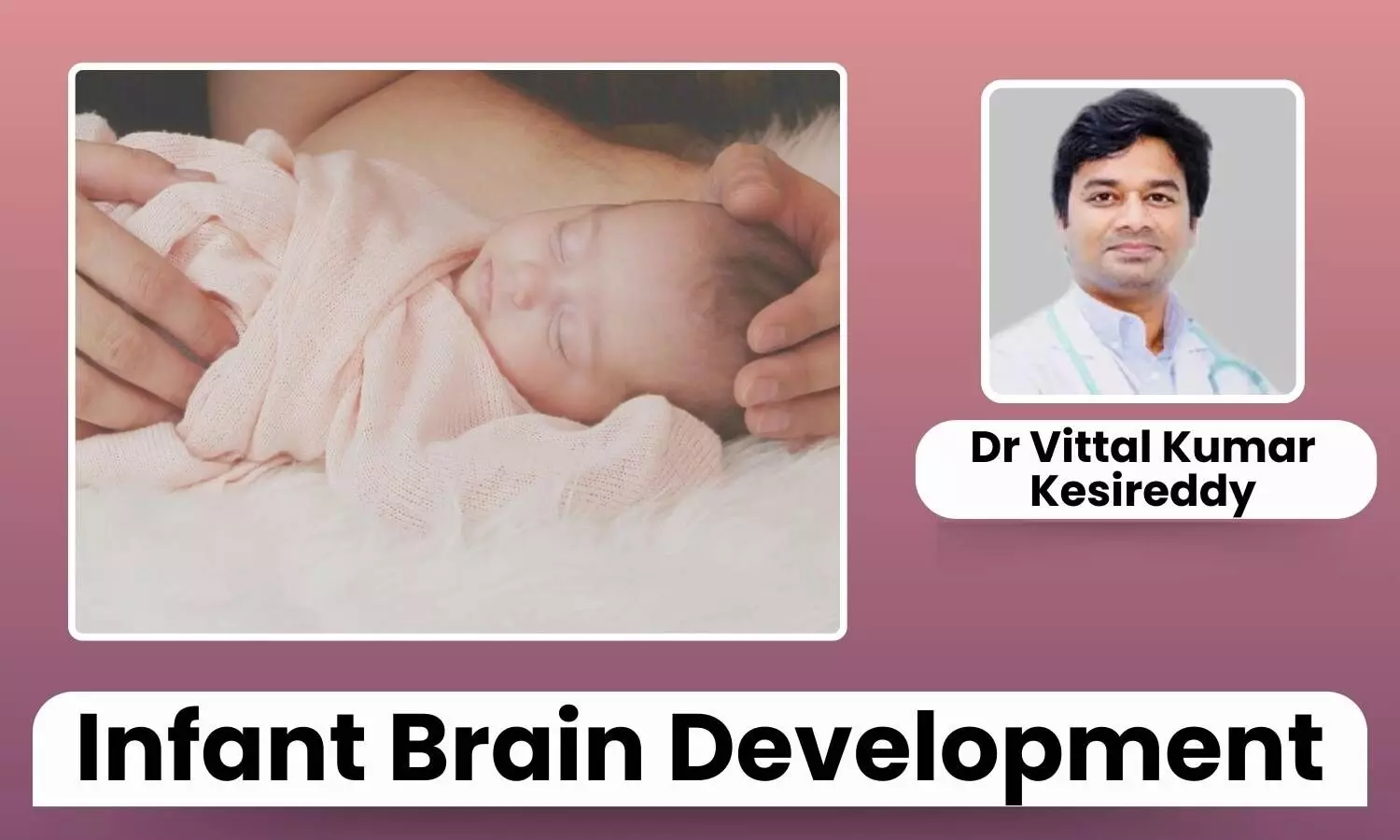Science Behind Infant Brain Development: How Baby’s Brain Grows in First Year - Dr Vittal Kumar Kesireddy

The first twelve months of an infant's life bring about astonishing growth within the brain. During this formative period, the foundations of learning, behaviour, and lifelong health are established through the brain's remarkable development.
As a paediatrician, I have witnessed this dynamic process unfolding and have seen how early encounters profoundly impact a child's developmental trajectory.
Let us delve into the mechanisms by which an infant's brain expands in the first year and explore the pivotal roles that sensory immersion, nourishment, and affection play in shaping neural connections.
Brain Development
The building blocks of cerebral formation commence at birth. An infant's brain is approximately a quarter the size of an adult brain, but accelerates rapidly, nearly doubling in scale by the end of the initial year as it achieves roughly sixty percent of its eventual volume. This expansion stems from synaptic networking, the pathways connecting neurons.
In the earliest phases, the architecture arises in response both to innate programming and external inputs. This phenomenon, referred to as neuroplasticity, allows the brain to adapt and reorganize based on an infant's interactions.
Essentially, the more an infant engages with their surroundings, the more robust their neural networks become strengthened.
Sensory Experiences
Sensory immersion acts as the gateway to learning. An infant comes to understand their world through their senses—sight, sound, touch, taste, and smell. Each sensory signal stimulates distinct brain regions, encouraging synaptic connections to form.
Vision: Initially, a newborn's vision is quite limited, but it improves rapidly throughout the first year. By exposing infants to high-contrast patterns, colourful playthings, and expressive faces, caretakers can enhance visual processing and attention in varied yet developmentally appropriate ways.
Hearing: Infants are born with an acute sense of hearing and can distinguish their mother’s soothing voice soon after birth. Talking, singing varied lullabies, and reciting picture books aloud to babies stimulate the auditory cortex and establish the foundation for language acquisition at their own pace.
Touch: Skin-to-skin contact and gentle massages are not just comforting, but also fundamentally important for an infant’s emotional and physical flourishing. Touch activates sensory neurons, promotes secure attachment, and reduces stress hormones in a steady yet responsive manner.
Taste and Smell: A baby’s emerging sense of taste and smell originates in the womb. Introducing diverse yet balanced flavours through breast milk or formula can familiarize them with different tastes gracefully, while pleasant smells help nurture positive associations in a developmentally-informed way.
Nutrition
Adequate nutrition is fundamentally important for healthy brain growth. Breast milk, often referred to as “liquid gold,” provides essential nutrients like DHA, an omega-3 fatty acid critical for building new brain cells. For formula-fed babies, ensuring the formula is fortified with similar nutrients is crucial.
Iron is another key component, as it supports oxygen transport throughout the brain. Deficiencies in iron during infancy can negatively impact cognitive development. Complementary foods, starting around six months, should include iron-rich options such as pureed meats, lentils, and fortified cereals introduced judiciously.
Hydration is equally important, and caretakers should ensure that their baby receives an adequate amount of fluids regularly, especially during hot weather or illness. Proper nutrition, combined with regular well-child visits, ensures that a baby’s developing brain receives the resources it requires to thrive.
Love and Brain Development
Love influences a baby's brain in profound ways. Positive interactions like cuddling and responding promptly to crying nurture security and trust through oxytocin release. This "love hormone" reduces stress while strengthening neural connections in emotional centres, establishing a framework for empathy and relationships.
Alternatively, sustained stress hinders growth. Prolonged cortisol elevates, disrupt connections and impair cognition and feelings. Caregivers must prioritize stability to counterbalance these risks.
That initial year represents a critical period for maximal receptiveness. Then, the brain is most impressionable to good influences. Thus, parents play a pivotal role by furnishing stimulation, nutrition, and unconditional care. Their actions maximize potential.
However, each baby progresses independently. Smiling or sitting may come later, within normal bounds. But noticeable lags warrant paediatric evaluation to identify and address any issues earlier.
Conclusion
In conclusion, a baby's first-year brain evolution demonstrates the synergy of nature and upbringing. Sensory encounters, proper sustenance, and affection fuel not only development but also a child's future prospects.
With attentive guidance, babies can realize their inherent capacities. By promoting overall wellness, we can empower families in each step of the way.


